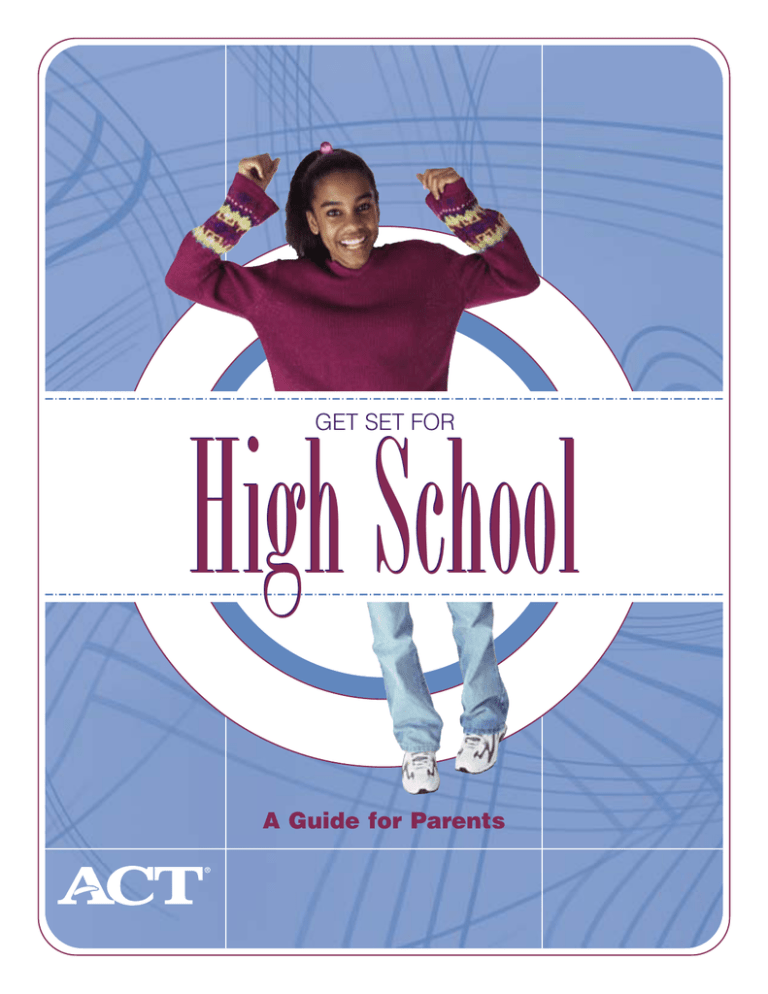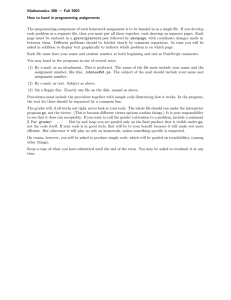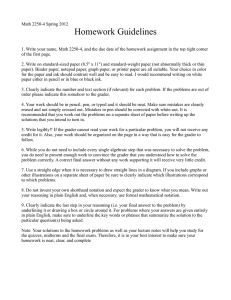High School A Guide for Parents GET SET FOR
advertisement

GET SET FOR High School A Guide for Parents Dea r paren t: Your child may already have an idea of what to do after high school. This idea may be realistic, like going to a two- or four-year college or entering the workforce. Or, it may be more of a dream, like becoming a professional athlete. Whatever future your child dreams about, the decisions that both of you make now and during high school can be very important. To help your eighth grader use the next four years wisely, we developed the Get Set for High School booklet. This Parent Guide has also been developed to give you a better understanding of what is in the student booklet. Together, they can provide a wonderful opportunity for you and your eighth grader to talk openly about the future. Get Set for High School and this Parent Guide are the result of the work of many people who care about your eighth grader’s future. We hope you will use these materials to guide both of you through the next four years. T! Good luck from AC 2 Work together and plan We suggest you read this guide first, and then go over Get Set for High School—A Guide for Students with your child. In particular, here are some topics that you may want to discuss together: Learn to be a good student. Many young people do not enjoy going to school. They may feel trapped in classrooms and may be embarrassed to ask for help. Tips for overcoming some of the barriers to learning and understanding how to be a better student are on page 3 of the student guide. Take the right courses. Since education after high school is necessary for many careers, it is important to make sure the high school courses your child takes will be appropriate for college. See pages 4–7 for these suggested courses and a chart your student can use to plan them. Use time outside of school wisely. Often, a good student is merely someone who has certain habits that help make learning easier. Some of these habits are fairly simple to develop (see page 8). Talking with your child about what the family can do to support good study habits may be very helpful. Start thinking about the future. Now is the time for your child to explore all the options—whether that’s going to college, working right out of high school, or joining the Armed Forces. Check with your school counselor about career and educational planning programs like ACT’s DISCOVER® that can help students explore different options. Pointers on career search and preparation are on pages 8–9. If college is a goal, don’t worry about costs at this point. There are many types of financial assistance offered by schools and the government that may help make college possible for your child. Be sure to check your state department of education to see if your state offers a savings plan for college. Page 10 outlines some financial options. Get help when you need it. There are many people and organizations that really care about how well your child does in school and in life. Some helpful, free resources are listed on the back of this guide. 3 Where to get your questions answered (Always start with your school counselor) General questions about education after high school, college financial aid, and saving for college U.S. Department of Education 800/USA-LEARN (800/872-5327) www.ed.gov/parents www.college.gov Other online sources www.actstudent.org/college College planning and preparation info www.collegeispossible.org American Council on Education www.finaid.org Student guide to financial aid www.cityyear.org Youth service program for urban schools www.npin.org National parent network for homeschooling Free publications Here are just a few of the free brochures you can order at www.edpubs.ed.gov ✦ Parent Expectations and Planning for College ✦ College Preparation Checklist ✦ Do You Need Money for College? ✦ KnowHow2Go: The 4 Steps to College ✦ College.gov: I’m Going (introduces students to the website and how to use it) © 2009 by ACT, Inc. All rights reserved. 12408


